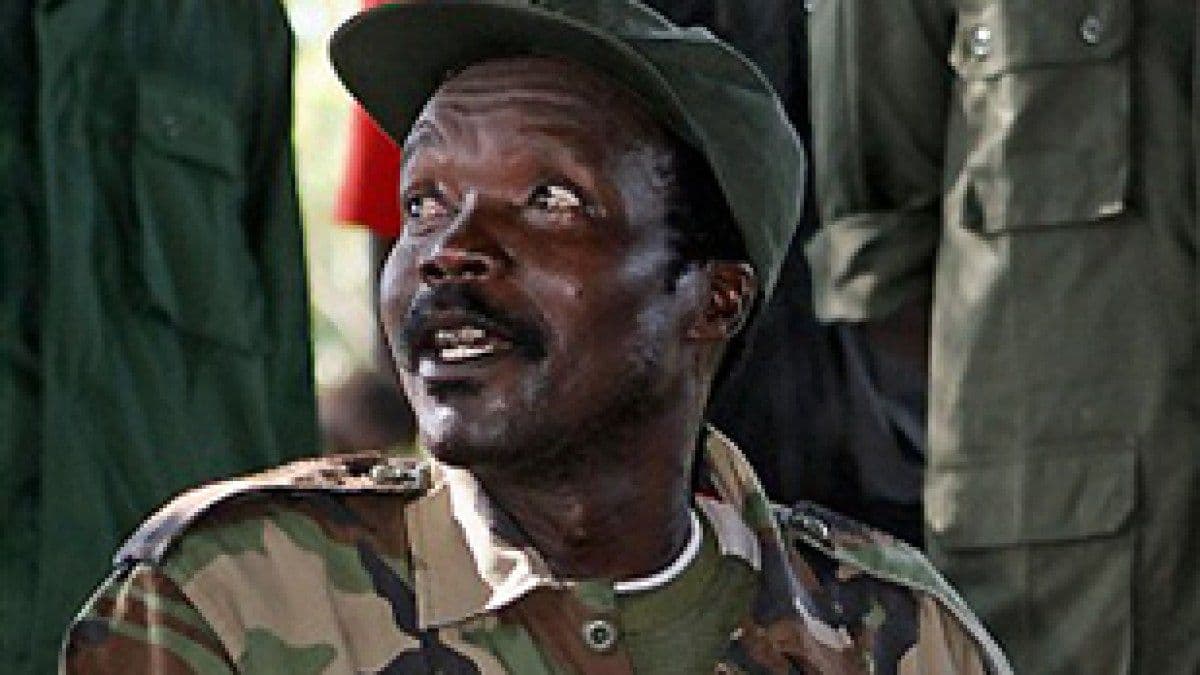We're loading the full news article for you. This includes the article content, images, author information, and related articles.
The Hague's landmark decision against the LRA leader, who remains at large, renews calls for his capture and holds significant implications for regional security and international justice in East Africa.

THE HAGUE, NETHERLANDS – In a significant move for international justice, Pre-Trial Chamber III of the International Criminal Court (ICC) on Thursday, November 6, 2025, confirmed all 39 charges of war crimes and crimes against humanity against the fugitive leader of the Lord's Resistance Army (LRA), Joseph Kony. The decision was made in absentia, a historic first for the court, allowing the case to proceed to a trial phase once the long-sought warlord is apprehended.
Kony, who has evaded capture for decades and is believed to be hiding in the Central African Republic (CAR), now faces a trial for a litany of atrocities committed during his brutal insurgency. An arrest warrant was first issued for him nearly two decades ago, on July 8, 2005, making him the ICC's longest-standing fugitive.
The 39 counts cover a reign of terror led by Kony and his LRA forces in Northern Uganda between July 2002 and December 2005. According to the United Nations, the LRA's campaign, which began in the late 1980s, resulted in over 100,000 deaths, the abduction of at least 60,000 children, and the displacement of millions across Uganda, the Democratic Republic of Congo (DRC), South Sudan, and CAR.
The charges are extensive and harrowing. The ICC judges found substantial grounds to believe Kony is responsible for 29 charges as an indirect co-perpetrator for crimes committed by the LRA under his command. These include murder, torture, pillaging, enslavement, forced marriage, rape, and the forced enlistment of children under the age of 15. The court highlighted attacks on schools and camps for internally displaced persons as part of his systematic campaign against civilians.
Furthermore, the Chamber held Kony directly responsible for 10 counts of crimes against humanity and war crimes, including enslavement, forced marriage, rape, torture, sexual slavery, and forced pregnancy, related to two victims who were forced to be his 'wives'.
For the survivors of the LRA's brutality, the ICC's decision has been met with a complex mix of hope and pain. In Gulu, the epicentre of the insurgency, victims welcomed the confirmation of charges but stressed that true justice remains elusive as long as Kony is free. Angel Stella Lalam, a survivor who now heads the War Victims and Networking Organization, told Agence France-Presse (AFP) that while the ruling was expected, it does not erase the suffering. “The confirmation of charges is cosmetic and does not address the suffering of the victims, especially when he is not in the dock and still at large,” she stated.
This sentiment underscores the deep psychological scars left by the conflict. Many former child soldiers, who were both victims and perpetrators, face immense challenges, while communities continue to grapple with the trauma of mass abductions, killings, and mutilations that defined the LRA's methods.
While the LRA's activities did not directly spill over into Kenya, the decades-long insurgency has had a profound impact on the stability of the wider East and Central African region. The LRA's ability to operate across porous borders in South Sudan, DRC, and CAR has long been a major security concern for neighbouring states, including Kenya.
Kenya, as a key player in regional peace and security through the African Union (AU) and the Intergovernmental Authority on Development (IGAD), has a vested interest in seeing accountability for such large-scale atrocities. The nation has often been at the forefront of regional interventions aimed at resolving conflicts and addressing humanitarian crises, including those involving war crimes and crimes against humanity. The pursuit of Kony is part of a broader effort to neutralize armed groups that destabilize the region, a goal that aligns with Kenya's foreign policy objectives.
The African Union previously authorized a 5,000-strong regional task force, including troops from Uganda, South Sudan, CAR, and Congo, to hunt for the LRA leader, an initiative supported by the United States. The ICC's renewed focus on the Kony case may galvanize international and regional partners to reinvigorate efforts for his capture, a critical step toward closing a dark chapter in the region's history and reinforcing the principle that impunity for such crimes will not stand.
The trial of former LRA commander Dominic Ongwen, who was convicted by the ICC in 2021 on 61 counts of war crimes and crimes against humanity, serves as a precedent. However, for victims and regional observers alike, justice will not be fully served until the architect of their suffering, Joseph Kony, faces the court in The Hague. The hunt for one of the world's most notorious war criminals continues.
Keep the conversation in one place—threads here stay linked to the story and in the forums.
Sign in to start a discussion
Start a conversation about this story and keep it linked here.
Other hot threads
E-sports and Gaming Community in Kenya
Active 9 months ago
The Role of Technology in Modern Agriculture (AgriTech)
Active 9 months ago
Popular Recreational Activities Across Counties
Active 9 months ago
Investing in Youth Sports Development Programs
Active 9 months ago